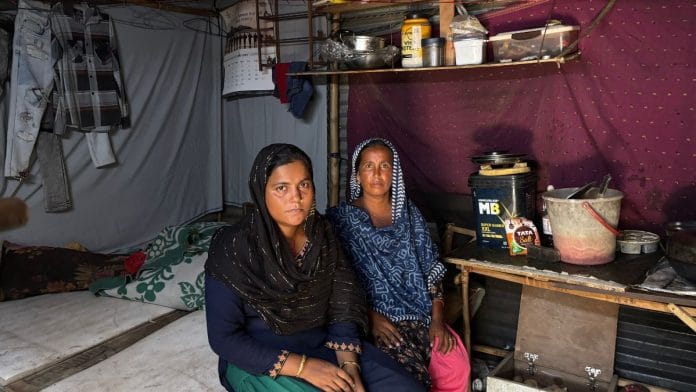Gurugram: Twenty-five-year-old Sareefa, a cleaner from Bihar, has stopped going to work early morning in a Gurugram high-rise in Sector 70. And she is careful not to speak in Bangla. She is trying to escape a police crackdown against illegal Bangladeshis that has seen many like her being detained over the past few days.
“My friend was picked up by police, on her way to work, her six-month-old baby was at home, she fled to Bengal, and did not return,” said Sareefa, who has now contained herself inside her jhuggi in the neighbourhood.
A sudden police crackdown on migrant workers after a home ministry notification on “illegal Bangladeshi citizens” has meant over 200-250 people have been detained, and several others are living under the shadow of fear. They came to the Millennium City with dreams of finding financial freedom; now they fight for civic freedoms. Migrants living in different pockets of Gurugram have been detained in Sector 70, Sector 49, Badshahpur, Q Block and other localities barely 5-10 km away from high rises of DLF and Golf Estate.
“These actions are spreading fear and terror, driving these people away from Gurugram back to the states where they come from, further violating their rights,” GNEM
As the calls for their release and criticism around police action pour in, Gurugram’s cosmopolitan image has once again taken a beating. While West Bengal CM Mamata Banerjee has called it a “linguistic terror”, her party colleague and MP Mahua Moitra released a video message calling out the police action. Meanwhile, the Haryana Police sources claimed only 10 people with Bangladeshi citizenship have been identified so far over two weeks after the “special verification drive” began in Gurugram and other parts of Haryana.
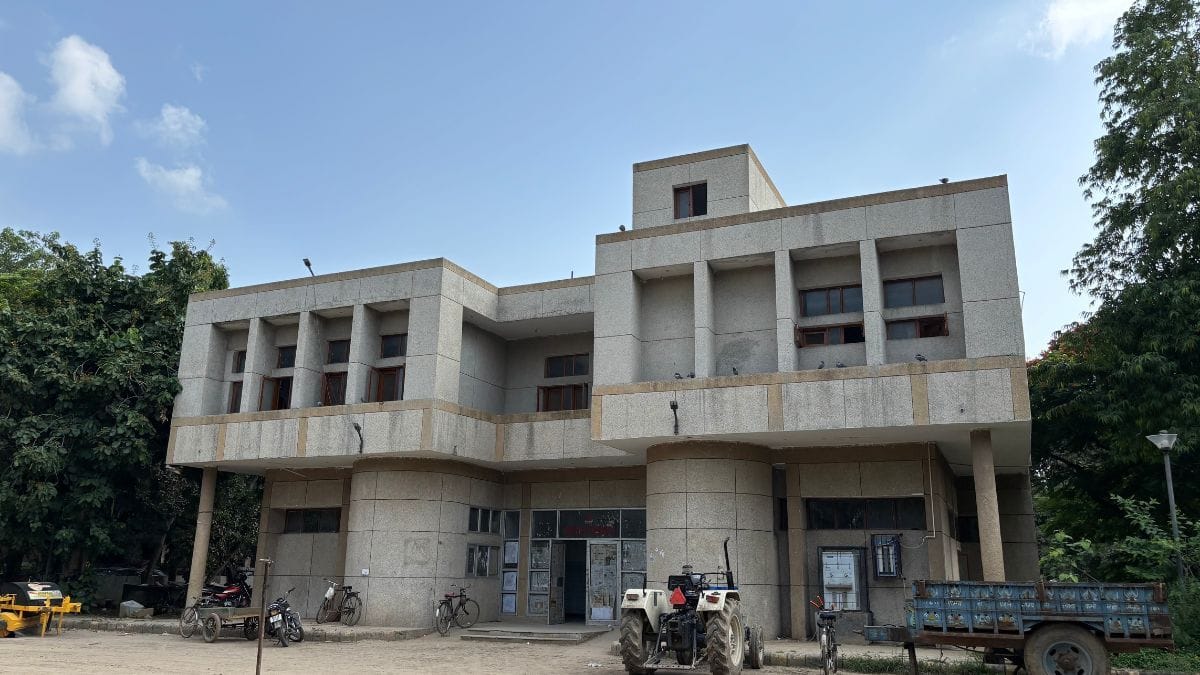
Over the past few decades, Gurugram has evolved as a city that is built largely by private capital. It runs on migrant labour. From sanitation, to house helps, security, construction and even the gig economy.
“A city goes to ruin when those who build and maintain it aren’t taken into consideration. The crackdown on migrant workers will disrupt Gurugram’s informal backbone and its exclusionary urban model,” said Tikender Panwar, former mayor of Shimla and member of Kerala Urban Commission.
Gurgaon Nagrik Ekta Manch (GNEM), a citizens’ group, met the Gurugram Police Commissioner on Monday and expressed their concern.
“These actions are spreading fear and terror, driving these people away from Gurugram back to the states where they come from, further violating their rights under Article 19(1)(g) – the right to livelihood in a conducive environment and Article 19(1)(d) – the right to move freely throughout India,” the statement said.
Of fear and silence
“If I go back, my family will die, if I stay, I may be detained,” said a Bengali migrant
In Sector 70, women work as domestic workers and caregivers, while men as labourers, housekeepers, or auto drivers. Many have quit their jobs and are planning to leave after at least six people were detained from this locality. Many have already returned to West Bengal, citing “safety concerns.”
Asad Ul, 48, looked nervous, tucking his Aadhaar card and voter ID inside his blue cotton lungi. His family has already left for Malda in West Bengal due to fear of being picked up by the Haryana Police.
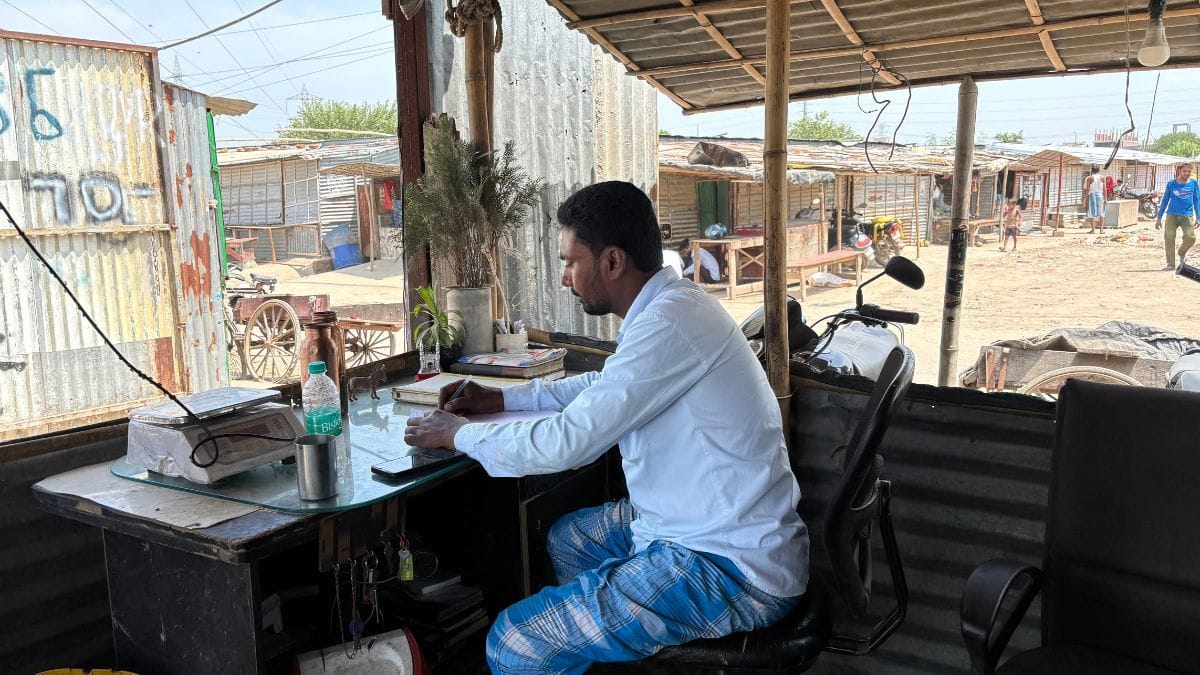
“If I go back, my family will die, if I stay, I may be detained,” said Asad, standing outside his scrap shop, waiting for work, and some news of relief on the crackdown in the neighbourhood.
For most people, going back home means unemployment for a longer duration. And an unplanned travel is further pinching their pockets.
The fresh round of exodus in this Sector 70 neighborhood has come exactly two years after migrant workers from Bengal faced attacks in the aftermath of the communal violence that broke out in Nuh during a VHP-led procession, resulting in deaths and FIRs.
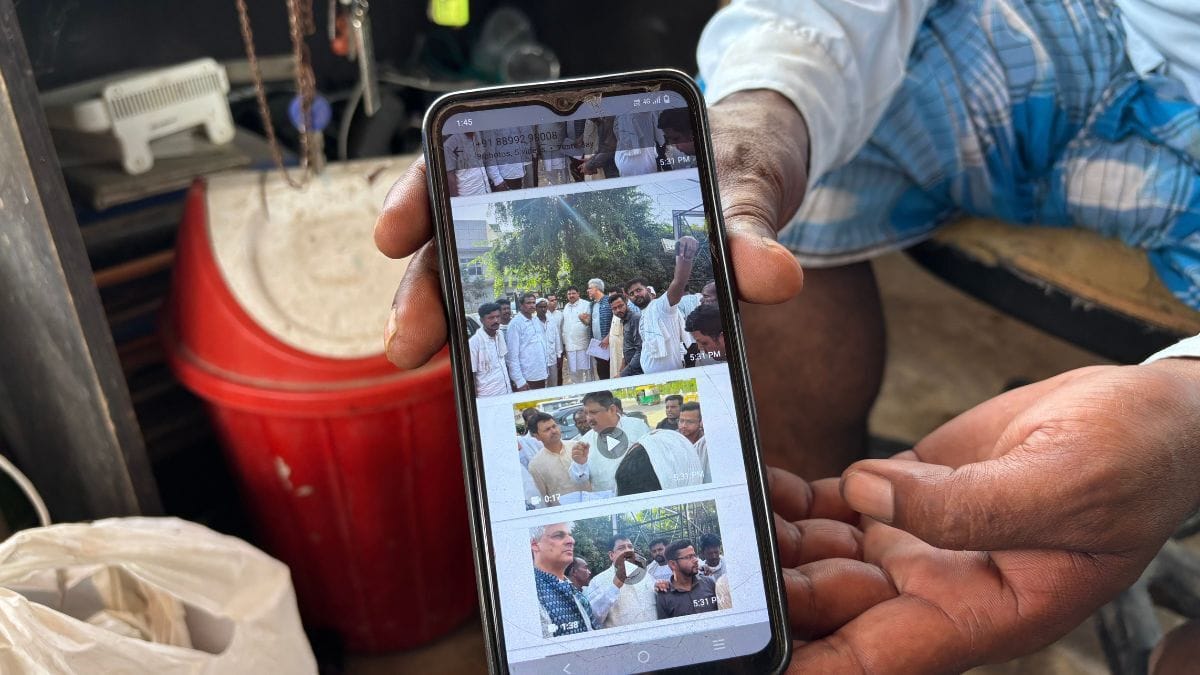
Asad came to Gurugram 25 years ago and first worked as a waste collector before he became a scrap dealer. If forced to leave, he’ll have to abandon the only source of income for a family of six, including children. He will also lose the trust and the network he has built over the years, working as a rag picker.
Belonging to West Bengal’s Malda district, Asad now finds himself alone in the city, unable to find the kind of safety a big city often promises.
“We clean your home, your bathrooms, we drive your cars, trucks, and when we’re under threat, nobody speaks for us,” said an agitated Asad.
Police raids and verification drives
“Nobody verifies our documents, they start name-calling, misbehaving, even abusing. We’re only held because we speak Bengali.”
Asad’s fear is corroborated by the four “holding centres” that have recently taken shape in Gurugram’s different community centres—located in Sector 10A, Badshahpur, Sector 40 and Manesar’s Sector 1. Up until four days ago, these centres were filled with hundreds of Bengali-speaking people as the police verification was underway.
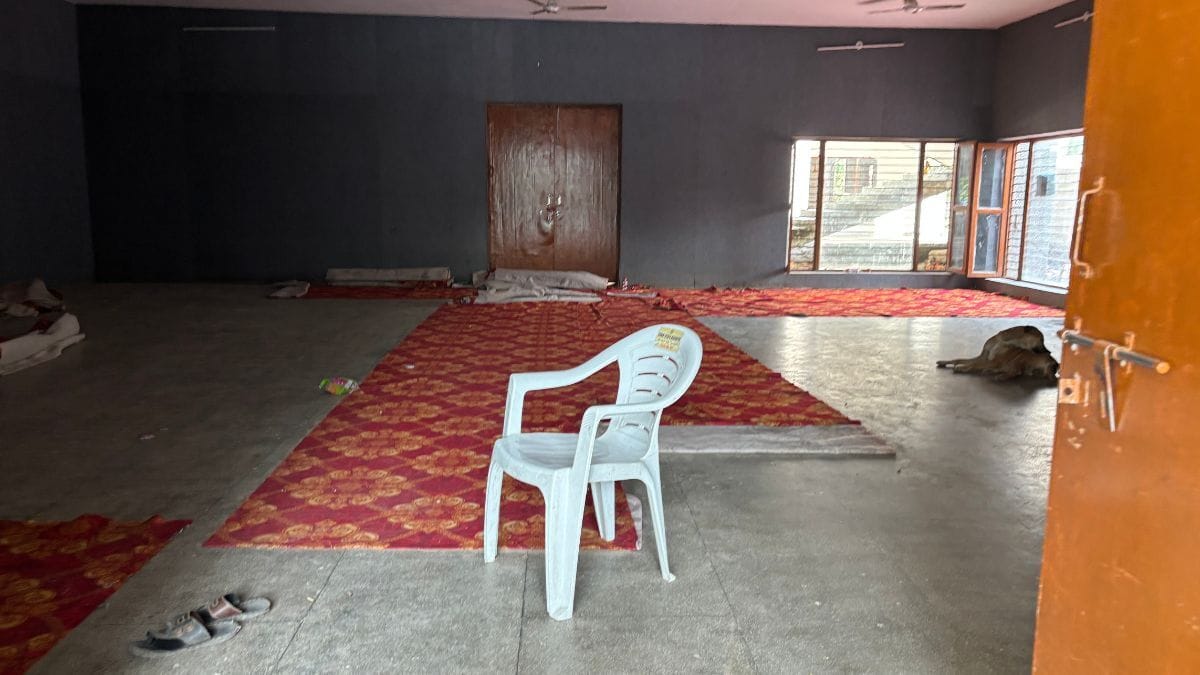
Despite those with valid IDs, police is verifying every lead and once their credentials are verified, they ’re being allowed to leave. Gurugram Police PRO Sandeep Kumar said on Monday that everyone who has been verified has now been released.
While the police claim there are basic amenities like food, water, medicines, and shelter provided to each person at these centres, the ground reality was different when ThePrint visited two such centres.
One of the “holding centres”, as the Gurugram Police is calling these detention centres, located at a community centre in Sector 40, had just one toilet. The big hall was dingy, dirty, and smelled of sweat, with just a few of the fans functioning in the city’s humid weather. As of Tuesday, only one detainee was present here.
Around 9 km away from here is the community centre in Sector 10, now completely emptied. The condition is similar to the Sector 40 centre. There were, however, no mattresses, only dusty carpets for people to sit and sleep. Dogs are loitering in the vicinity.
Though these holding centres remain empty now, they haven’t been shut yet. The police are occupied with security arrangements for the Common Eligibility Test that concludes Tuesday. The drive will pick up pace after that.
Rahman, 30, was detained from Sector 28 and brought to the holding centre. He spoke to ThePrint over the phone from his hometown in Malda. During his detention, despite producing government IDs, he faced harassment at the hands of the police. He alleged the cops called him a “Bangladeshi.” Rahman was detained for three days before being released.
Many have accused the police of misbehaving with them. Haseemuddin, 37, works at a car wash, earning Rs 20,000 a month. Ever since the police launched this drive, his owner has refused to call him back to work. The migrant from Malda district of West Bengal has already sent his four children and wife back home and is now trying to sustain his earnings while escaping police action.
“Nobody verifies our documents, they start name-calling, misbehaving, even abusing. We’re only held because we speak Bengali,” said Haseemuddin.
The Gurugram police PRO has firmly denied any abuse by the police, adding they are still managing “the panic caused by rumours of custodial torture.”
An officer told ThePrint on condition of anonymity that raids have been carried out in the early hours in the last three weeks by special teams deployed at different police stations.
“Only those without valid IDs, or those with suspicious digital activity, like phone calls to Bangladesh, or deleted phone data, are being verified at length,” said the officer quoted above.
The police are sharing daily updates on every suspected person with the state’s home secretary’s office, the DM, or the deputy commissioner, who are carrying out further verification. Police will verify their backgrounds and further details based on the address given on a case-by-case basis. Gurugram police said West Bengal police have provided quick assistance in handling the matter.
“In case they flag any concerns, steps are taken with the help of the central government to deport the suspect,” said the Gurugram Police PRO.
Also read: Bihar voter list revision is not anti-democratic—India can’t let illegals influence polls
Building the millennium city
“More people were entering the city, hence more hands were needed to build. The migrants used their village network to find jobs,” said Usha Saroha.
In Gurugram’s Sector 70, a dusty stretch separates two worlds. One side has high rises with glass and marble facades, on the other are tin-roofed jhuggis housing migrant workers from West Bengal, and a few others from Bihar and Assam.
New construction is a constant in the neighbourhood. The millennium city that is covered with cranes and condos is also run by migrant workers. They clean the inside of the homes while also picking up the garbage from the streets.
Largely an agricultural area, Gurugram’s rapid development began in the late 70s and 80s, when Maruti Suzuki set up a manufacturing plant. DLF initiated real estate development. By the 90s, there were multinational companies that began setting up.
“More people were entering the city, hence more hands were needed to build. The migrants used their village network to find jobs,” said Usha Saroha, All India Democratic Women’s Association’s General Secretary.
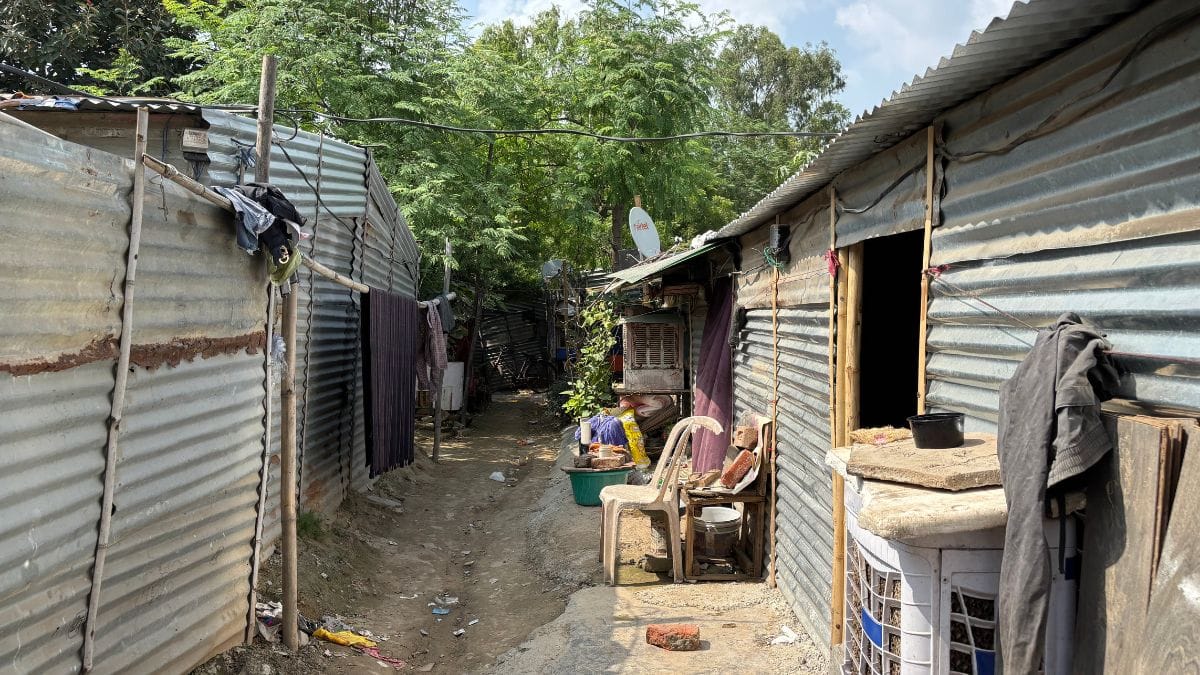
Shareeq Ul Sarka, 33, a native of Dakshin Dinajpur in West Bengal, is preparing food for the evening batch at his dhaba in Sector 49. His macher jhol, he claimed, is popular among the migrant workers. Looking for employment opportunities, Sarka came to Gurugram in 2003. Today, his dhaba employs six people, all from his family.
Now, Sarka finds his future uncertain as the police have asked him to produce his grandfather’s and great-grandfather’s property documents and birth certificate. He is also expected to arrange a passport because the police have asked him for it.
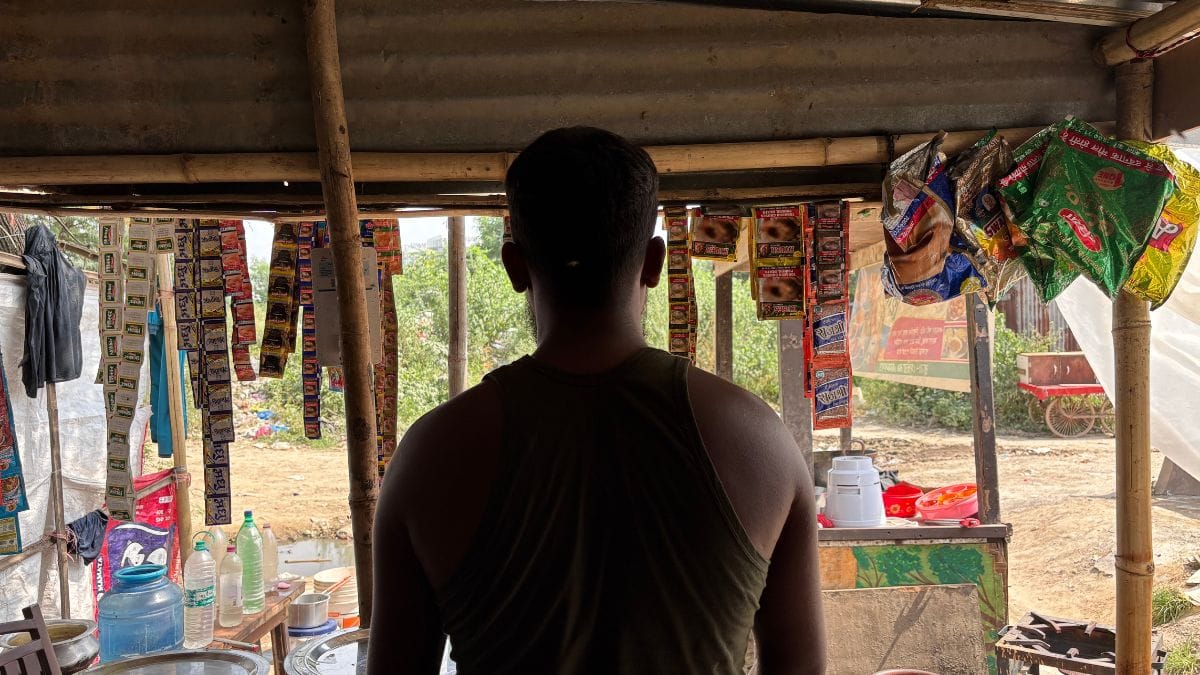
As per the police, a birth certificate, an Indian passport, a domicile certificate, a police clearance certificate, voter ID card are documents that are required to establish Indian citizenship. Cops said Aadhar cards or PAN cards are valid documents; however, they do not establish citizenship.
“Some of us come from villages where we had never seen a train. I don’t know how I’ll have to figure out a passport now,” said Sarka.
Sarka’s story in Gurugram is similar to how the migrants from across India moved to Gurugram.
The West Bengal police has also launched a helpline number for workers to seek assistance. TMC state Vice President Jakir Hossain said that West Bengal police have received several queries from migrant workers across India, caught between the crackdown, and the police has been assisting people. “Cities like Delhi, Mumbai were built by poor migrant workers, and today, those who don’t have money to secure legal aid, have been held to prove their citizenship,” said Hossain. Most of the workers come from Malda, Uttar Dinajpur, Nadia, and Coochbehar.
As fear and confusion has spread across migrant colonies, civil society groups and residents in Gurugram have stepped up to fill the gaps.
Inside a WhatsApp group that has alerts for another minute, residents of Gurugram, police researchers, local NGO workers, activists, journalists, and lawyers are working round the clock. They’re sifting through forward messages, grainy videos, and images of their domestic workers either being detained or questioned by police. Members are working to verify information on any detention and to seek legal aid of any kind. They’re also coordinating with families of those detained, and contacting local MLAs for further intervention.
Information on detention and calls for legal help are frequent in this group. However, the police is using the same group to circulate messages urging RWAs to report any “suspected illegal Bangladeshi” resident.
One of the members of the group, Ritu Anand, who has been working in the clothing industry, is a resident of Ivy apartments, a gated high-rise. Her domestic worker, Zaina, has been working with her for over three years now, but she has decided to go back to West Bengal.
“She’s leaving tomorrow, tickets are so expensive, and almost everybody is boarding the train; she has two kids and her husband,” said Ritu.
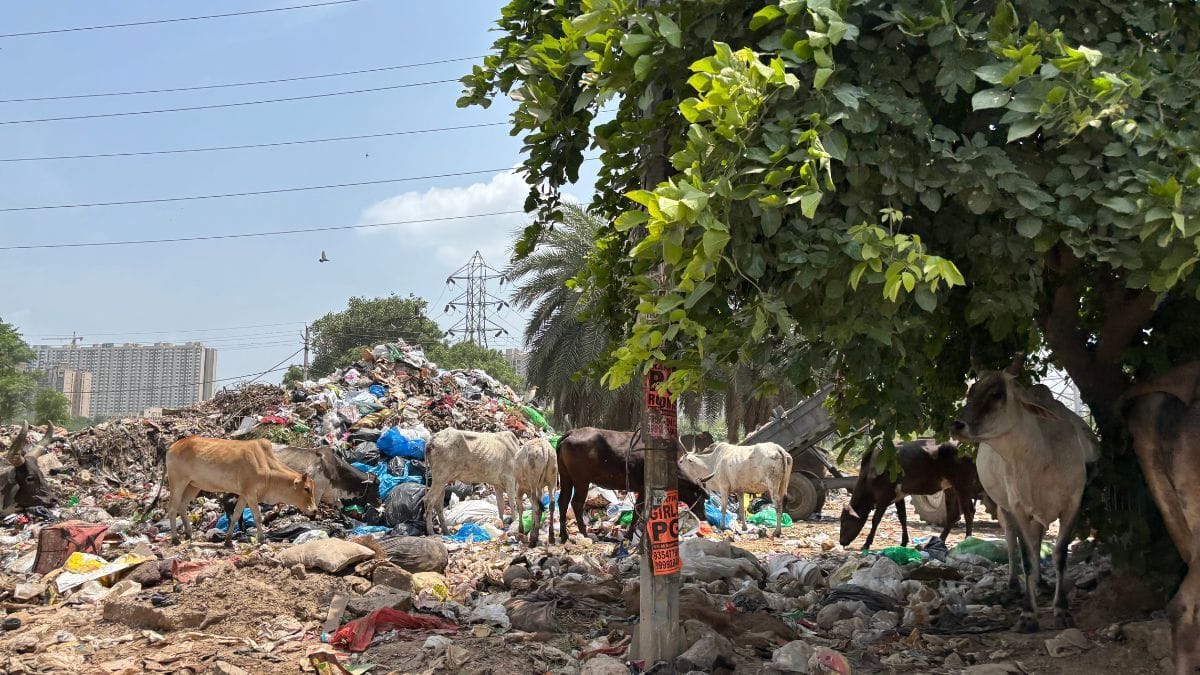
Nearly 60-70 percent of domestic workers have left the Ivy Apartment. And like many high rises in Gurugram, residents here too are complaining of a “garbage problem” that has emerged after the police crackdown.
Zaina, who rented a room in Sector 28, has been asked to vacate the property by her landlord, citing the police drive.
On Sunday night, Zaina boarded the train to Malda with her family. They had no ticket, only their government IDs, Aadhar card and voter ID, along with weight and fear.
(Edited by Anurag Chaubey)



